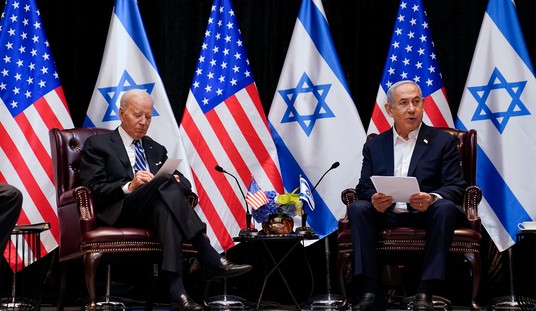Western countries are on high alert for possible Islamic State infiltrators in their armed forces.
This comes just weeks after an active duty U.S. soldier, Ikaika Erik Kang, was arrested at his base in Hawaii for providing material support to ISIS.
On Monday, Fox News reported that a still-classified Pentagon inspector general investigation found “security risks” in a program to fast-track foreign U.S. military recruits towards U.S. citizenship (new applications for the program have been suspended). The program, begun in 2009, now has 10,000 members — and some of those program participants are now missing:
FNC Exclusive: Military program for immigrants may be compromised by "foreign infiltration"; @JamesRosenTV reports. https://t.co/W2hVuszu5u pic.twitter.com/xyAwCxmtlh
— Fox News (@FoxNews) August 2, 2017
Last month, the German military increased screening of potential recruits due to possible infiltration by would-be jihadists after they discovered dozens of ISIS supporters among their ranks. And earlier this week, a former top UK counterterrorism official also warned about Islamists who already may be inside the wire:
Islamists may have already infiltrated our armed forces, writes Colonel Richard Kemp https://t.co/P9YQEb6nQu pic.twitter.com/5DvdazO5TI
— The Times (@thetimes) August 1, 2017
Writing in The Times, Colonel Richard Kemp, the former head of the UK’s anti-terror COBRA team, warned:
The jihadists’ strategy of infiltration goes back years and despite the authorities rejecting hundreds on security grounds it is inconceivable that some have not succeeded in joining and are now “sleepers”, awaiting orders to strike.
…
Armed forces members have access to sensitive intelligence, secure locations, members of the royal family, high-ranking officers and politicians, aircraft, tanks and nuclear submarines. Those with such potentially devastating opportunities have increased security vetting but what security vetting can be sure to detect an individual who is radicalised while serving, or pressurised to act by extremists who perhaps threaten his family?
The problem is exacerbated by a culture of political thought control under which soldiers and police officers are frightened to report suspicious behaviour for fear of being branded racist.
A report last month indicated that 250 recruits had been rejected by the UK during a screening for potential terrorists. And it’s not just the UK grappling with these issues:
Germany
Military intelligence authorities were scheduled last month to begin implementing new screening procedures after it was revealed that more than 29 former Bundeswehr soldiers were fighting with ISIS in Syria and Iraq.
Last November, military intelligence confirmed 20 Islamists already in the ranks, and 60 additional cases under review.
France
In June 2016, the director of Protection and Defence Security told the French Parliament that they were investigating 50 cases of radicalization among their military ranks, and that 8 percent of their recruits were failing initial screenings. A report by RFI in January 2015 claimed that 10 French soldiers had defected to ISIS, with at least one of those serving as a senior commander with the terror group. Some of those defectors came from highly trained commando units, with others coming from the foreign legion.
Belgium
Last year, it was reported that the Belgian General Intelligence and Security Service was investigating 60 cases of potential radicalized soldiers. Last October, a former Belgian soldier Hicham Diop stabbed two Brussels police officers in a terror attack. He was known to have contacts with ISIS operatives in Syria. Diop had served in the Belgian military until 2009, but he had run for a regional parliament seat in 2004 as a candidate for a hardline Islamist party.
As the recent arrest of Sgt. 1st Class Ikaika Kang shows, the U.S. is not immune to the problem of jihadists in the ranks:
#FBI SAC Paul Delacourt announced the arrest of Ikaika Kang, an active duty soldier based in Hawaii, on terrorism charges.
— FBI Honolulu (@FBIHonolulu) July 11, 2017
In fact, Kang had been under investigation since 2016 after it became apparent he was becoming radicalized. He had also reportedly had his security clearance pulled in 2012 after threatening to kill his fellow soldiers.
Two other high-profile cases: Major Nidal Hasan, the al-Qaeda-inspired Fort Hood killer; and PFC Naser Abdo, sentenced to life in prison for going AWOL and planning to attack U.S. troops at a restaurant near Fort Hood.
There have been a number of other former U.S. military personnel charged in terror plots:
https://twitter.com/TheAtlanticRSS/status/318791731724296192
Former U.S. Air Force veteran Tairod Pugh was sentenced to 35 years in prison this past May for material support for ISIS and obstructing justice.
In June 2012, NPR reported — following PFC Abdo’s terror conviction — that the U.S. military was investigating more than 100 cases of extremists in the active duty ranks, with a dozen cases considered “serious.” No additional figures about ongoing investigations related to active duty personnel have been reported.
Even authorities in each of these countries are most likely unaware of how deep the jihadist threat runs through their respective armed forces, though it’s been known for years that terror groups have been directing and instructing their followers to infiltrate Western militaries.
Defectors from the military to terror groups bring with them valuable experience and training that can be duplicated.
As the November 2009 attack at Fort Hood demonstrated, failing to address the problems of infiltration and radicalization within the military ranks can have lethal consequences.








Join the conversation as a VIP Member